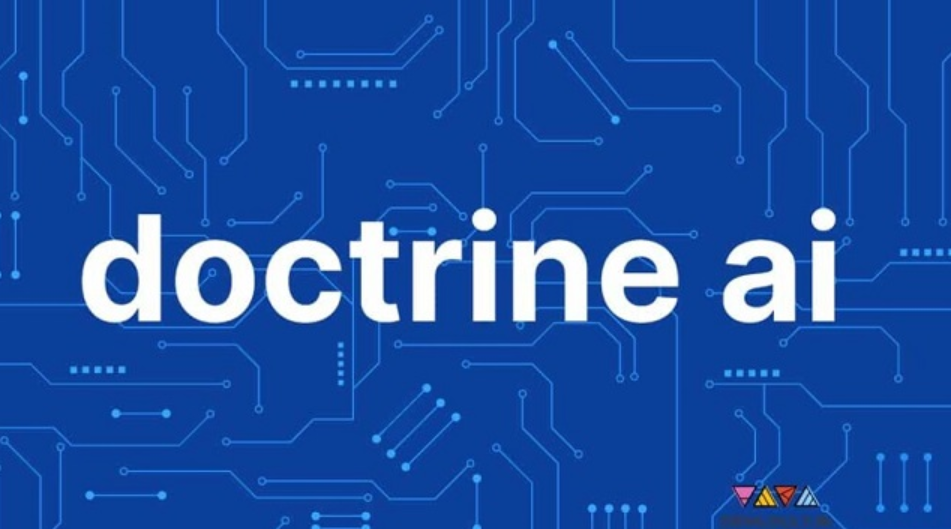Frontiers of Doctrine AI: Shaping the Future of Innovation

The realm of artificial intelligence (AI) is ever-evolving, with It standing at the forefront of this technological revolution. This cutting-edge approach to AI not only promises to redefine the boundaries of machine learning and automation but also aims to address the ethical, practical, and societal challenges that accompany the integration of AI into our daily lives. This article delves into the intricacies of Doctrine AI, unraveling its principles, applications, challenges, and its profound impact on the global stage.
Understanding Doctrine AI
It is not just a technological innovation; it’s a philosophical approach to how artificial intelligence should be developed, implemented, and integrated into society. It emphasizes ethical guidelines, transparency, and the responsible use of AI technologies. The evolution of Doctrine AI reflects a growing awareness of the need for AI systems that are not only intelligent but also ethical and sustainable.
Read also: Mysteries of Naz Tricks: A Comprehensive Guide
The Principles of Doctrine AI
At its core, It is guided by a set of principles designed to ensure that AI technologies benefit humanity while minimizing risks. These principles include fairness, accountability, and sustainability. Ethical considerations are paramount, with a strong focus on ensuring that AI respects human rights and privacy.
Applications of Doctrine AI
It finds applications across various sectors, revolutionizing industries by enhancing efficiency, innovation, and decision-making processes. From healthcare, where it improves patient care and diagnostics, to finance, where it offers sophisticated risk assessment models, Doctrine AI’s versatility showcases its transformative potential.
The Technology Behind Doctrine AI
The backbone of Doctrine AI lies in its advanced technologies and frameworks, including machine learning algorithms, neural networks, and big data analytics. These technologies enable it to learn, adapt, and make informed decisions, pushing the boundaries of what AI can achieve.
Challenges and Controversies
Despite its potential, it faces ethical dilemmas, privacy concerns, and security risks. These challenges necessitate a balanced approach, where the benefits of AI are harnessed while mitigating its risks through stringent ethical standards and robust security measures.
Doctrine AI in the Workplace
The integration of Doctrine AI into the workplace is transforming employment landscapes, automating routine tasks, and freeing up human workers to focus on complex and creative endeavors. This shift, however, requires careful management to ensure a smooth transition and to address concerns around job displacement.
Global Impact of Doctrine AI
It’s global impact is profound, influencing economic, societal, and cultural dynamics. It presents opportunities for economic growth and efficiency but also raises questions about inequality, surveillance, and the digital divide. Navigating these challenges is crucial for harnessing Doctrine AI’s positive potential while minimizing its downsides.
Future Directions of Doctrine AI
Looking ahead, the future of it is filled with possibilities. Innovations in AI research and development promise to overcome current limitations, offering more sophisticated, ethical, and user-friendly AI solutions. However, this future also requires vigilance to address the ethical and societal implications of advanced AI technologies.
Regulatory Landscape for Doctrine AI
The regulatory landscape for Doctrine AI is evolving, with national and international frameworks being developed to ensure responsible AI development and use. These policies aim to foster innovation while protecting individuals’ rights and promoting ethical AI practices.
Building a Doctrine AI Strategy
For businesses and governments, developing it strategy is essential for leveraging AI technologies effectively. This involves understanding AI’s potential, aligning AI initiatives with ethical standards, and fostering a culture of innovation and responsibility.
Educational Opportunities in Doctrine AI
The growing field of it offers numerous educational opportunities, from specialized programs and courses to diverse career paths in AI development, ethics, and policy-making. Education plays a crucial role in preparing the next generation of AI experts and ethical leaders.
Doctrine AI and Ethics
Ethical considerations are at the heart of Doctrine AI, emphasizing the need for AI that is not only intelligent but also responsible. Developing ethical AI involves ongoing dialogue, research, and collaboration among technologists, ethicists, and policymakers.
The Role of Doctrine AI in Sustainable Development
It offers promising solutions for environmental challenges and social responsibility, contributing to sustainable development goals. From optimizing resource use to enhancing disaster response, Doctrine AI can play a pivotal role in creating a more sustainable and equitable world.
Read also: Unlock the Power of Data Science with R Connect Login
Conclusion
Doctrine AI represents a pivotal shift in the landscape of artificial intelligence, heralding a future where AI technologies are developed and utilized with a keen focus on ethical principles, societal benefits, and global impact. As we navigate this promising yet challenging frontier, it is incumbent upon us to foster a balanced approach that ensures the advancements in AI contribute positively to humanity’s collective future.
FAQs
What distinguishes Doctrine AI from other AI approaches?
It is unique because it integrates ethical considerations directly into the development and application of artificial intelligence technologies. Unlike traditional AI, which focuses primarily on enhancing computational efficiency and problem-solving capabilities, Doctrine AI prioritizes ethical guidelines, transparency, and the responsible use of AI. This approach ensures that AI technologies are developed and used in a manner that benefits humanity while addressing potential risks and societal impacts.
How does Doctrine AI address ethical concerns?
It addresses ethical concerns by embedding ethical principles into the core of AI development processes. These principles include fairness, accountability, privacy, and sustainability. By prioritizing these values, Doctrine AI aims to create technologies that respect human rights, protect individual privacy, and contribute positively to society. Moreover, Doctrine AI involves stakeholders from diverse backgrounds in its development process to ensure a wide range of ethical perspectives are considered.
What industries are most impacted by AI?
It has a transformative impact across multiple industries, including healthcare, finance, education, transportation, and manufacturing. In healthcare, it improves patient care through predictive analytics and personalized medicine. In finance, it enhances risk assessment and fraud detection. Education benefits from personalized learning experiences, while transportation and manufacturing see improvements in efficiency and safety through automation and predictive maintenance. These impacts are characterized by increased efficiency, innovation, and ethical consideration in AI applications.
Can it create or eliminate jobs?
It has the potential to both create and eliminate jobs. While it may automate routine tasks, potentially displacing jobs in certain sectors, it also creates new opportunities in fields like AI development, ethical oversight, and more specialized areas that require human creativity and empathy. The key to mitigating job displacement lies in proactive workforce retraining and education, preparing individuals for the evolving job market that Doctrine AI shapes.
How can individuals prepare for a career in Doctrine AI?
Individuals interested in a career in it should focus on gaining a strong foundation in computer science, mathematics, and ethics. Developing programming skills, particularly in languages like Python, and understanding machine learning algorithms are crucial. Equally important is studying ethical frameworks and guidelines pertinent to AI. Engaging in interdisciplinary studies that combine technology with philosophy, law, and social sciences can also provide a well-rounded education. Additionally, practical experience through internships, projects, and research in AI ethics and development will be invaluable.
What are the biggest challenges facing today?
The biggest challenges facing It include ensuring ethical compliance across diverse and international contexts, managing privacy and security risks, and addressing the societal impacts of automation and surveillance. Balancing innovation with ethical considerations requires ongoing dialogue among technologists, policymakers, and the public. Moreover, developing inclusive and universally accepted regulatory frameworks that guide the ethical development and use of AI technologies remains a significant challenge.




